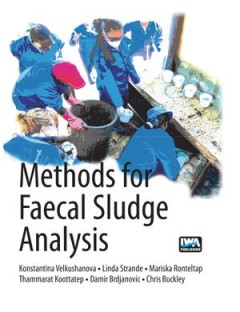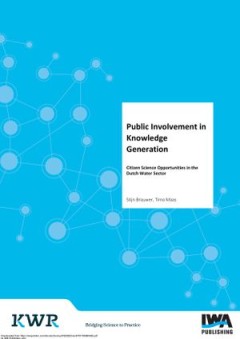Filter by

Methods for Faecal Sludge Analysis
Faecal sludge management is recognized globally as an essential component of city-wide inclusive sanitation. However, a major gap in developing appropriate and adequate management and monitoring for faecal sludge is the ability to understand and predict the characteristics and volumes of accumulated faecal sludge, and correlations to source populations. Since standard methods for sampling and a…
- Edition
- -
- ISBN/ISSN
- 9780000000622
- Collation
- -
- Series Title
- -
- Call Number
- -

Faecal Sludge Management Systems
"It is estimated that literally billions of residents in urban and peri-urban areas of Africa, Asia, and Latin America are served by onsite sanitation systems (e.g. various types of latrines and septic tanks). Until recently, the management of faecal sludge from these onsite systems has been grossly neglected, partially as a result of them being considered temporary solutions until sewer-based …
- Edition
- -
- ISBN/ISSN
- 9781780404721
- Collation
- -
- Series Title
- -
- Call Number
- -

Experimental Methods in Wastewater Treatment
Over the past twenty years, the knowledge and understanding of wastewater treatment has advanced extensively and moved away from empirically-based approaches to a fundamentally-based first-principles approach embracing chemistry, microbiology, and physical and bioprocess engineering, often involving experimental laboratory work and techniques. Many of these experimental methods and techniques h…
- Edition
- -
- ISBN/ISSN
- 9781780404752
- Collation
- -
- Series Title
- -
- Call Number
- -

Applications of Activated Sludge Models
In 1982 the International Association on Water Pollution Research and Control (IAWPRC), as it was then called, established a Task Group on Mathematical Modelling for Design and Operation of Activated Sludge Processes. The aim of the Task Group was to create a common platform that could be used for the future development of models for COD and N removal with a minimum of complexity. As the collab…
- Edition
- -
- ISBN/ISSN
- 9781780404660
- Collation
- -
- Series Title
- -
- Call Number
- -
 Computer Science, Information & General Works
Computer Science, Information & General Works  Philosophy & Psychology
Philosophy & Psychology  Religion
Religion  Social Sciences
Social Sciences  Language
Language  Pure Science
Pure Science  Applied Sciences
Applied Sciences  Art & Recreation
Art & Recreation  Literature
Literature  History & Geography
History & Geography